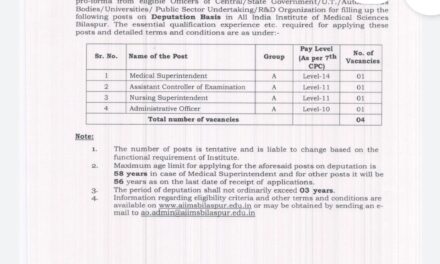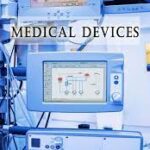A parliamentary committee has raised alarms over the nation’s inadequate testing and regulation of radiation-emitting medical devices, urging immediate reforms to safeguard public health. The Standing Committee’s report, released on Monday, highlighted serious deficiencies in the infrastructure for testing essential medical equipment such as X-ray machines and MRIs.
Despite the presence of regulatory bodies like the Atomic Energy Regulatory Board (AERB) and the Central Drugs Standard Control Organization (CDSCO), the committee found that the National Testing House (NTH) lacks the necessary expertise and capacity to carry out thorough and effective testing of these devices. The absence of sufficient resources and infrastructure has left critical gaps in the regulatory framework, raising concerns about the safety of radiation-emitting medical devices used in healthcare settings.
The committee’s report called for immediate reforms to address these challenges, recommending a collaborative framework between NTH, AERB, and CDSCO. This cooperation would aim to strengthen testing capabilities and ensure stringent regulatory compliance.
Key proposals in the report include:
- Developing specialized testing capabilities: The committee stressed the need to develop advanced testing facilities capable of accurately assessing the safety and performance of radiation-emitting devices.
- Investing in state-of-the-art infrastructure: Upgrading the testing infrastructure was identified as a crucial step to meet the growing demands of modern medical technology.
- Enhancing staff training: The report highlighted the need to invest in specialized training programs for NTH staff, ensuring they are equipped with the necessary skills to conduct rigorous testing.
- Creating research partnerships: Collaboration with academic and research institutions would foster innovation in testing methods and help keep pace with advancements in medical technology.
Furthermore, the committee emphasized the need for a more geographically distributed testing network. It proposed increasing funding to establish testing centers in each state, ensuring that healthcare providers nationwide have access to reliable and accurate testing facilities.
The committee’s report underscores the critical importance of improving the regulation of radiation-emitting medical devices, particularly as their use continues to rise in diagnostic and therapeutic procedures. Without urgent reform, the committee warned that public health could be at risk.
The recommendations, if implemented, could help establish a more robust and reliable framework for the regulation of medical devices, ultimately improving patient safety across the country.











